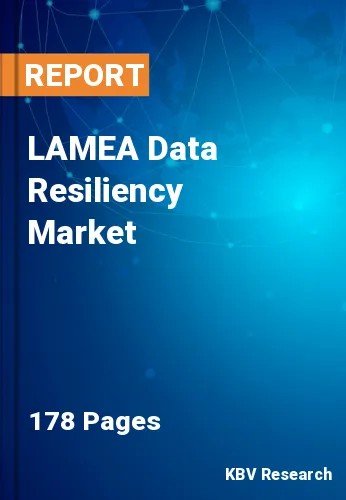
The Latin America, Middle East and Africa Data Resiliency Market would witness market growth of 21% CAGR during the forecast period (2017-2023). Resiliency is the ability of a server, network, storage system, or an entire data center, to recover quickly and continue operational functions when there is an equipment failure, power outage or other disruptions. Data resiliency supports data availability to various applications and end users, even in the instances of data failure in the hosted system. Based on organization sizes, the small & medium enterprises segment would grow at a higher CAGR, during the forecast period. Cost is a factor for the Small & Medium Enterprises (SMEs), due to budget constraints. SMEs face resource crunch; therefore, it is vital to incorporate improved methods to resolve complexities considering cost as a major component.
Based on Type, the Data Resiliency market segments the market into Solution and Services. Solution Type includes Data Backup & Recovery, Data Archiving & E-Discovery, and Disaster Recovery. The Services market is segmented into Professional and Managed Services. Based on Organization Size, the market report segments the market into Small & Medium Enterprises and Large Enterprises. Based on Deployment Mode, the market report segments the market into Cloud and On-Premise. Based on Vertical, the market report segments the market into BFSI, Government, Energy & Utilities, Healthcare, Manufacturing, Retail, Telecom & IT, Media & Entertainment, and Others. Based on Countries, the Data Resiliency market segments the market into Brazil, Argentina, UAE, Saudi Arabia, South Africa, Nigeria, and Rest of LAMEA.
The market research report covers the competition analysis of key stake holders of the Latin America, Middle East and Africa Data Resiliency Market. Key companies profiled in the report include Microsoft Corporation, CA Technologies, Inc., IBM Corporation, Micro Focus, CenturyLINK Technology Solutions, Acronis, Inc., Netapp, Inc., Commvault, Veeam Software, and Dell Technologies, Inc.
Related Reports:
North America Data Resiliency Market
Asia Pacific Data Resiliency Market
Our team of dedicated experts can provide you with attractive expansion opportunities for your business.
